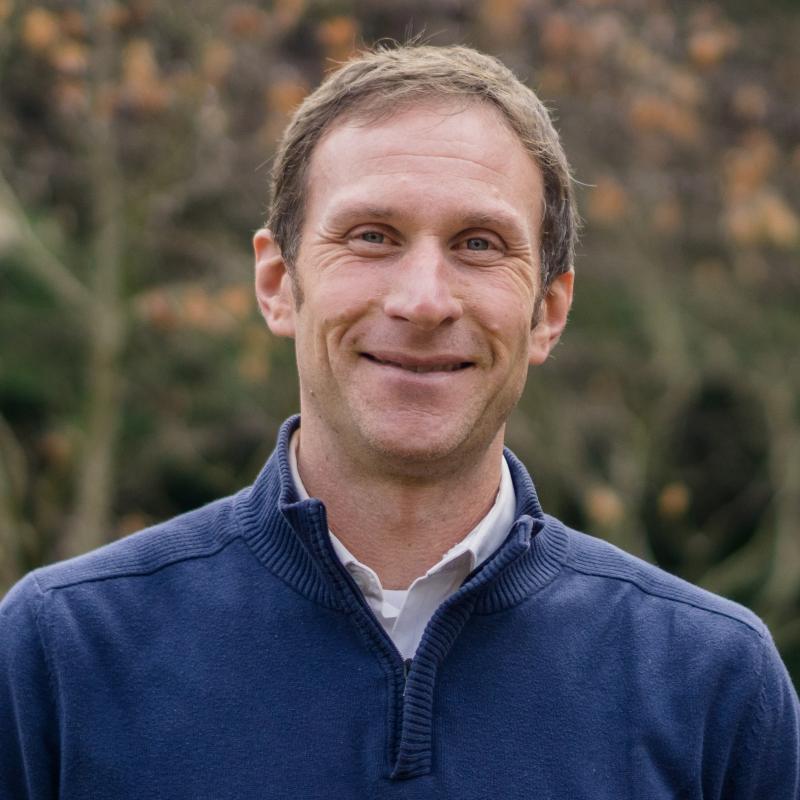Edward Lyon
Professor and Single Subject Credential Program Coordinator, MA in Education with Concentration in CTL Advisor, Single Subject Candidate Advisor

Contact
707-664-3002
[email protected]
Office
Stevenson 2203Office Hours
I engage in teaching, scholarship, and service to address how middle and high school science teachers can best implement instructional and assessment practices that promote scientific sense-making and literacy development in multilingual classrooms. As a Co-Principal Investigator for the NSF funded Secondary Science Teaching with English Language and Literacy Acquisition (SSTELLA) Project, my colleagues and I have developed and researched innovative approaches in secondary science method courses to better prepare new science teachers to teach English learners. I have also studied how new and experienced science teachers come to develop expertise at assessing science learning responsively in multilingual classrooms. This scholarship has helped me frame my teaching for single subject candidates around a set of high leverage teaching practices that candidates experience analyze, and approximate in the context of new national teaching priorities and standards, namely Next Generation Science Standards and Common Core.
Biography
2019-current Sonoma State University: Department of Curriculum Studies and Secondary Education
- Associate Professor and Interim Department Chair (Fall 2019)
- School of Education Assessment & Accreditation Director (2019-current)
- Sonoma State STEM Teacher Education Pathways Co-Director (2019-current)
2015-2019 Sonoma State University: Department of Curriculum Studies and Secondary Education
- Assistant Professor
- Sonoma State STEM Teacher Education Pathways Co-Director (2018-2019)
2012-2015 Arizona State University: Mary Lou Fulton Teachers College
- Assistant Professor
2007-2012 University of California, Santa Cruz: Department of Education -
- Graduate Student Researcher - Effective Science Teaching for English Language Learners (ESTELL);
- Science Assessment Language Demands (SALD)
2003-2008 High School Science Teacher (Biology, AP Biology, Chemistry, Academic Science Sheltered Learning)
Education
- Ph.D. in Education at University of California, Santa Cruz, 2012
- M.A. in Education at University of California, Santa Cruz, 2009
- M.Ed. in Education at University of California, Los Angeles, 2004
- Single Subject Teaching Credential in Biology at University of California, Los Angeles, 2003
- B.S. in Pyschobiology, University of California, Los Angeles, 2002
Academic Interests
• Science education
• Formative assessment
• English learners
• Socio-cultural perspectives on teaching, learning, assessment
• Core teaching practices
• Secondary preservice teacher education
• Literacy in content instruction
Concentrations
- [EDSS 444] Curriculum, Instruction and Assessment: Science
- [EDUC 571] Research Paradigms in Education
- [EDUC 598] Developing a Thesis/Project
- [EDSS 458] Student Teaching in Multicultural Settings
Selected Publications & Presentations
GRANTS
National Science Foundation Improve Undergraduate STEM Education (IUSE) program, Grant No. DUE-1626917 (2016-2020)
STEM Education Through Sophomore Innovation (SETSI): Developed and investigated pathways to attract and increase retention of STEM majors through a multi- disciplinary maker-centered course and associated Makerspace for undergraduate students. Position: Co-Principal Investigator Amount: $584,705
National Science Foundation Discovery Research preK-12 (DR K-12) program, Grant No. DRL-1316834 (2013-2019)
Secondary Science Teaching with English Language and Literacy Acquisition (SSTELLA): Developed, implemented, and researched secondary science teacher preparation programs across California, Arizona, and Texas that have restructured science method courses and mentor teacher support to integrate language/literacy development with contextualized inquiry-based science aligned with NGSS Position: Co-Principal Investigator (P.I. of Arizona State University site [2013-2015], P.I. of Sonoma State University site [2015-2019]) Amount: $3,000,000
BOOKS
Lyon, E. G., Tolbert, S., Solís, J., Stoddart, T., & Bunch, G. C. (2016). Secondary science teaching for English learners: Developing supportive and responsive learning contexts for sense-making and language development. Lanhman, MD: Rowman & Littlefield Publishers, Inc.
JOURNAL ARTICLES
Lyon, E. G. Stoddart, T., Bunch, G. C., Tolbert, S., Salinas, I., & Solís, J. (2018). Improving the preparation of novice secondary science teachers for English Learners: A proof of concept study. Science Education, 1-31. Doi: DOI: 10.1002/sce.21473
Lyon, E. G. (2017). Exploring secondary science teachers’ enactment of assessment practices to reflect responsive science teaching for English learners. Journal of Science Teacher Education, 28(8), 674-698.
Guilford, J., Bustamante, A., Mackura, K., Hirsch, S., Lyon, E. G., & Estrada, K. (2017). Text Savvy: Planning rich reading experiences to support language development while teaching genetic variation. Science Teacher, (January 2017), 49-56.
Lyon, E. G. (2016) The antibiotic resistance of MRSA: Teaching natural selection with literacy development for English learners. Science Activities: Classroom Projects and Curriculum, 53(1), 33-47.
Tolbert, S., Stoddart, T., Lyon, E. G., & Solís, J. (2014). The next generation science standards, common core state standards, and English language learners: A framework for pre-service secondary science teacher education. Issues in Teacher Education, 23(2), 65-90.
Shaw, J., Lyon, E. G., Mosqueda, E., Stoddart, T., & Menon, P. (2014). Improving science and literacy learning for English language learners: Evidence from a pre-service teacher preparation intervention. Journal of Science Teacher Education, 25(5), 621-643.
Lyon, E. G. (2013). Learning to assess science in linguistically diverse classrooms: Tracking growth in secondary science preservice teachers’ assessment expertise. Science Education, 97(3), 442-467.
Lyon, E. G. (2013). Conceptualizing and exemplifying ‘assessment expertise’ in linguistically diverse science classrooms. International Journal of Science Education, 35(7), 1208-1229.

